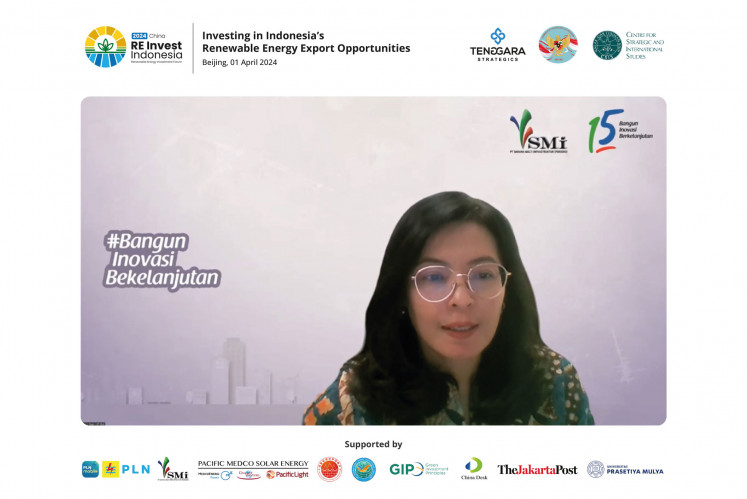Understanding the Wirang and Patut in traditional law enforcement
Traditional villages in Bali nowadays can be said to be undergoing various problems and challenges in customary law, both internally and externally.
Change Size

T
raditional villages in Bali nowadays can be said to be undergoing various problems and challenges in customary law, both internally and externally. Meanwhile, the leaders and the people of the traditional villages take the legal action through the imitation process and follow what other members of neighboring places do so that vigilante acts which are based on togetherness are often found. There is an assumption that actions taken together through the village forums are perceived to be correct. This joint action is also perceived as a form of participation in defending the villages called “wirang”. The newest phenomenons that can be used as an example of cases, among others, are: the action of the Pakudui villagers who brought "Pretima" (holy symbols) to the Gianyar District Court for the case of Laba Pura land; The act of removing "Penjor" by one of the villagers in the Taro Kelod Traditional Village which was subjected to sanction Kasepekang ‘ostracized’ in individual and village land disputes; The act of burning the land cultivator’s house in the territory of Traditional Village of Julah, Buleleng in the case of traditional land disputes known as land belonging to the traditional village; The application of kasepekang sanctions in the case of land registration through PTSL in the Jerokuta Traditional Village, Pejeng Gianyar.
Wirang which is equivalent to sutindih may mean belapati ‘care’, defending all-out until willing to die. The implementation of the wirang can have a positive impact, and it can also have a negative impact. Wirang will have a positive impact if it is based on the right concepts, processes and procedures. Meanwhile, it will have a negative impact if it is done incorrectly without a clear concept. Therefore, the wirang needs another aspect as a companion to have a positive impact, namely "proper". Therefore, the word wirang cannot be separated from the word “proper" as an integrated whole. With a clear concept, mobilization of traditional villagers that are basically not needed can be avoided for the state legal matters. The action of summoning Taro Kelod villagers by their leaders to give testimony as a witness in the case as a form of wiring should not have been done. So, when it is done improperly, the concept of wirang is defined with a misguided thought.
Awig-awig enforcement is only carried out if there is a violation. The enforcement of awig-awig is carried out through the provision of sanctions (pamidanda) according to the level of the violation/mistakes. The main purpose is to "educate" so that the awareness of the concept of propriety grows back. This is called "returning the balance", because it involves sekala ‘related to the universe’ and niskala ‘related to belief’. This means that violators are able to distinguish between appropriate and inappropriate actions. Based on this, the model of giving the form of sanctions must be carried out in stages, namely from the lightest to the most severe. The light one can be in the form of pengaksama, which is in the form of an apology based on awareness through the meetings. While the most severe sanctions can be in the form of kasepekang or kanorayang ‘ostracized’ sanctions.
The enforcement of awig-awig through the application of sanctions is more oriented to the "proper" value, meaning that the appropriate form of sanctions called "proper" is applied by referring to the principles of harmony and togetherness. Rukun means that the application of customary sanctions must not cause new problems but can solve the problem. In addition, the sanctions applied are able to create a legal culture for the villagers, namely in the form of the assumption "it is appropriate" which is called "opinion necessitatis". So, there is no turmoil from the villagers. In the application of customary sanctions, it does not cause a violation of the right to live for the villagers who may break human rights such as stopping water sources, revoking Penjor as a means of carrying out religious ceremonies. The concept of getting along can be interpreted as applying customary sanctions not be based on a sense of "hate" and hostility, but on the basis of "humanity" in the hope they will become good villagers and obey awig-awig as a guide of having good behavior.
The observation shows that the application of the kasepekang sanction was carried out directly to the hardest level of sanction without going through a classification process. This means that the application of sanction is directly to the most severe sanction, namely the kesepekang sanction. So, people justify that this type of sanction is no longer appropriate to be used as a type of sanction in awig-awig because it is allegedly inhumane and violates the human rights. However, what is actually inhuman is the process, procedures, human resource capabilities, the background of giving sanction is based on hatred and hostility. It means that there is a disregard for the principle of propriety. Case positions need to be well noted to provide equality of relations as a form of relationship among the villages under the umbrella of the Tri Hitakarana Philosophy. If a dispute occurs between an individual and his village, it can be mediated by prioritizing the principles of appropriateness, harmony and having the same and leaving it to the choice of the law to be used whether it will be resolved through non-litigation or litigation. Whatever choice they have, they must be respected in finding appropriateness based on customary law and/or state law. All parties should be able to respect the legal decision. The imposition of kasepekang sanction is always oriented to the educational aspect to improve the quality of human resources in the villages, and vice versa they do not cause violations of state law.
The application of sanctions in customary law by violating state law shows that traditional villages are not able to carry out their autonomy as an alliance of customary law. Another implication will be the emergence of new problems that require settlement according to state law. So, the problems will multiply and cause instability in the village. Then, it creates a situation that is not conducive and irrelevant to the purpose of forming the awig-awig. In addition, strengthening traditional villages cannot only be done by forming institutions such as MDA and building their buildings equipped with facilities. What is more important is the real work of human resources through the preparation of work programs with clear targets according to quality standards for "strengthening the traditional villages", not intervening in power and manipulation that is not relevant with the term and concept of "confirmation", but is more oriented towards affirming and establishing the appropriate patterns that are suitable for the customary law communities in their function as social control. The autonomous and automatic nature of the traditional villages should be understood and maintained in the formation of state laws such as regional regulations that are able to reflect prismatic law. Therefore, the R&D function of the customary institutions that have been formed appears to be the main need and program, so that the R&D results can be used as the basis In forming policies in the region so that on the one hand it is relevant to the needs of the traditional villages, and on the other hand it is able to provide an umbrella from the aspect of legal certainty. It seems that until now several dispute cases in the traditional villages have become wild and increasingly tangled because the existing legal system has not been able to be integrated to be interpreted and applied properly and correctly, that’s why the study of Friedman's legal system seems to be relevant.
by Prof. Dr. I Made Suwitra, SH.,MH
Professor of Faculty of Law Warmadewa University Denpasar Bali
Email: madesuwitra27@gmail.com









